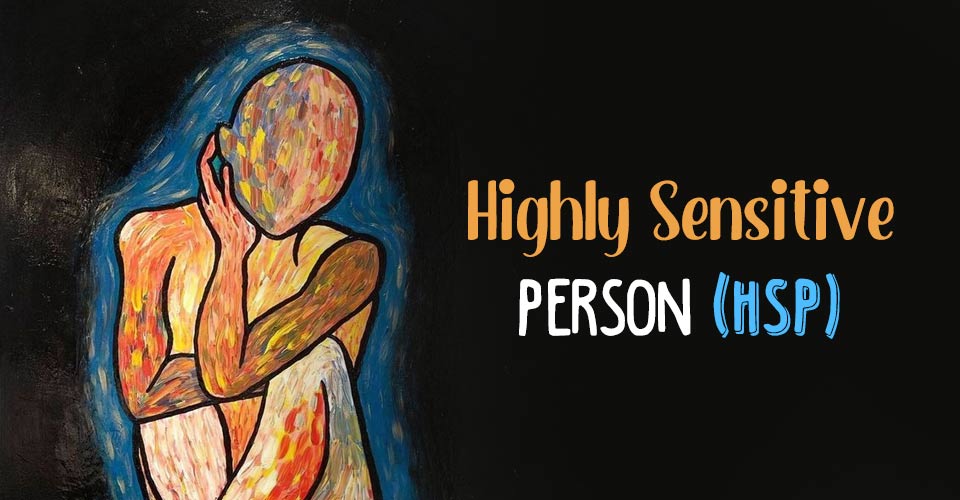Culture Craze
The Beauty and Burnout of Feeling Deeply: Why Highly Sensitive People See the World Differently

You’re Not ‘Too Much’: You’re Just Wired Differently
Ever been told you’re “too sensitive” for crying during an advert or needing to leave a packed mall because it felt like your skin was buzzing? You’re not overreacting. You might just be one of the millions of people living with a trait that science now recognises as sensory-processing sensitivity.
It doesn’t mean you’re broken. It means you process the world more richly than most.
What Does It Mean to Be a Highly Sensitive Person?
The term “highly sensitive person,” or HSP, might sound clinical, but it’s not a diagnosis. It comes from research dating back to the 1990s, when psychologist Dr Elaine Aron began unpacking why some people feel more deeply, notice more detail, and react more strongly to everything from loud sounds to emotional cues.
Roughly 15 to 30 percent of people are believed to be HSPs. That means someone in your circle, maybe even you, is wired to absorb and analyse their surroundings with more depth and emotional weight.
You might notice flickering lights in a restaurant before anyone else does, feel physically exhausted after tense conversations, or get emotionally flooded by films that others brush off. It’s not weakness. It’s heightened perception.
Feeling More Can Come with a Cost
In 2025, researchers published a landmark review in Clinical Psychological Science, examining two decades of data. The goal: to find out whether being highly sensitive is linked to mental health risks.
The results confirmed what many HSPs already intuitively know. People with high sensitivity are more likely to experience anxiety and depression. There were also weaker but noticeable links to PTSD, phobias, and obsessive-compulsive tendencies.
But here’s the important part. This research doesn’t suggest that sensitivity is a disorder. Instead, it highlights how certain nervous systems are more vulnerable in overstimulating or unsupportive environments. It’s a call to clinicians to better tailor mental health care to those who feel more intensely, not to label them as damaged.
So, What Does This Look Like in Real Life?
It might mean you stay awake replaying a conversation for hours. Or you flinch when the kettle boils. Or you cry at the same scene in a film every time and can’t explain why.
Brain scans show that highly sensitive people actually light up more in regions tied to empathy and emotion. You are, quite literally, hardwired to feel things more vividly.
That also means you’re often the first to sense when a friend is down, the one who spots tension in a room no one else notices, or the person everyone turns to when they need someone who just gets it.
The Flip Side of Sensitivity: The “Boost Effect”
Being highly sensitive doesn’t just mean you’re more prone to stress. It also means you’re more responsive to positive environments. Researchers call this the “Boost Effect.”
Put simply: HSPs tend to thrive in caring, calm, and creative spaces. You don’t just survive in these settings; you flourish. In fact, some of the best artists, teachers, caregivers, and therapists are deeply sensitive individuals whose empathy and intuition give them an edge.
Think of it this way: you don’t have thinner skin; you have a more finely tuned radar.
But Even Superpowers Need Rest
In a city like Joburg, where life comes with constant noise, hustle, and stimulation, sensitive people often burn out faster. That’s not a moral failing. It’s biology.
The science is clear: caring deeply takes a toll when you’re not also carving out space to recharge. Without emotional boundaries or decompression time, HSPs are more prone to emotional fatigue and mental health dips.
So how do you take care of your sensitivity without dulling it?
Nurture the Trait, Don’t Fight It
If you recognise yourself in this article, try:
-
Prioritising quiet: Solitude and calm aren’t luxuries for HSPs. They’re non-negotiable. Build breaks into your day and protect your downtime.
-
Curating your spaces: Adjust lighting, limit overwhelming noise, and create emotional boundaries. Even a small ritual, like journaling after a draining day, can help.
-
Leaning into your gifts: Channel your depth into art, mentorship, writing, therapy, or leadership. Your sensitivity is your creative edge.
-
Choosing relationships wisely: HSPs flourish around kindness. Whether it’s a coach, therapist, or supportive friend group, find people who understand and uplift you.
It’s Not Just OK to Feel Deeply. It’s Powerful.
The world doesn’t always honour sensitivity, but it desperately needs it. From art to activism, from family life to leadership, the people who feel the most often carry the emotional weight for everyone else.
Being highly sensitive isn’t about fragility. It’s about precision. It’s about noticing what others miss. And in a world of noise, distraction, and emotional distance, that is a rare kind of brilliance.
So next time someone says you’re “too sensitive,” remember, your depth is not a defect. It’s your strength.
Also read: How to Feel Less Overwhelmed in Just 5 Minutes
Follow Joburg ETC on Facebook, Twitter, TikT
For more News in Johannesburg, visit joburgetc.com
Source: IOL
Featured Image: Mind help















